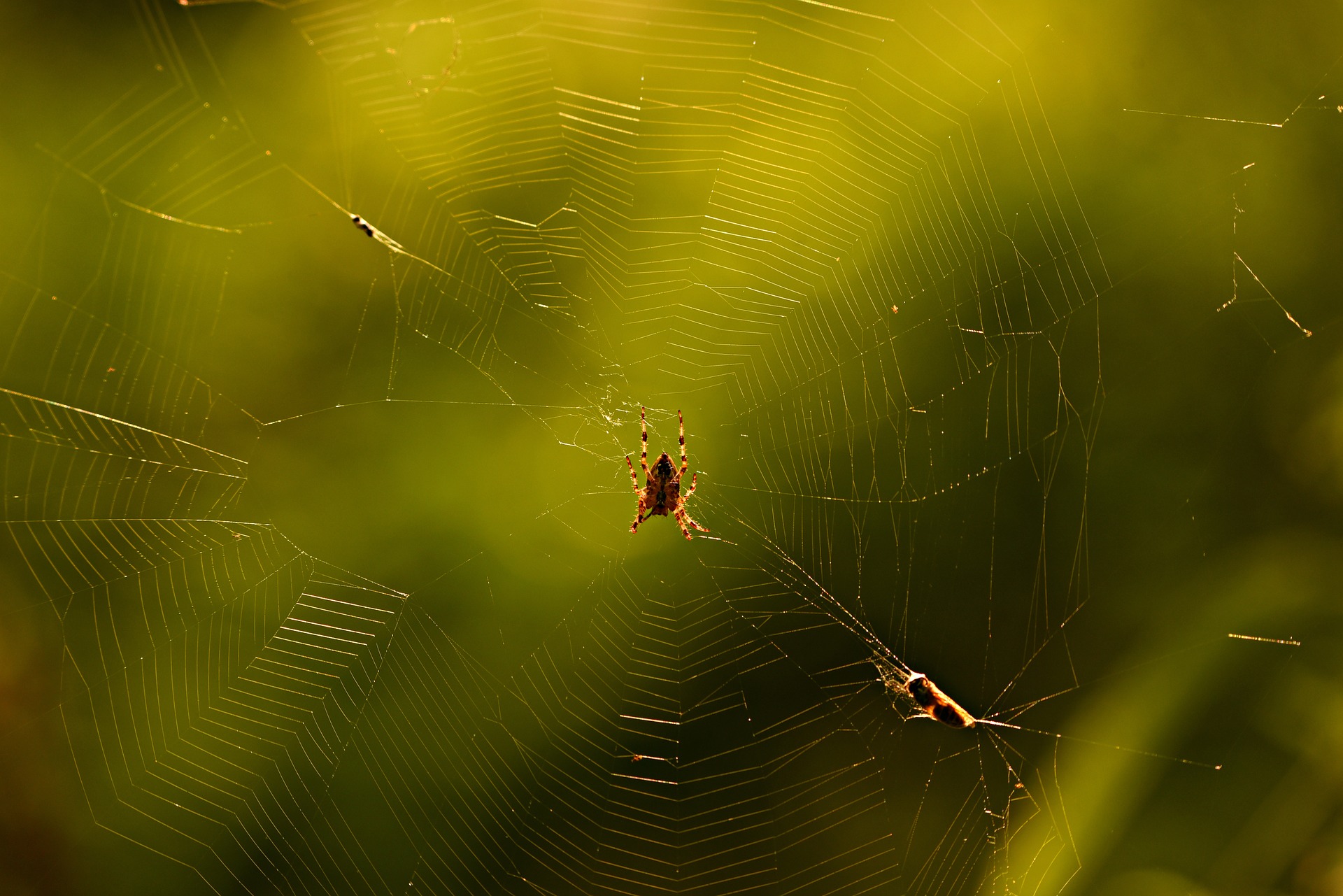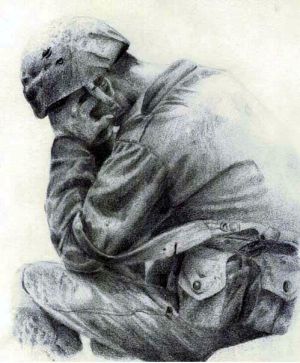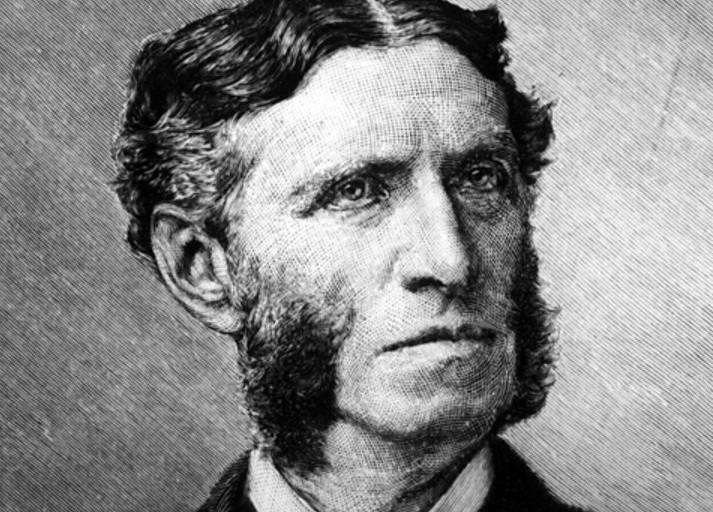Stanza 1 –
The poem The Spider and The Fly opens with a dialogue between a predator (the spider) and a prey (the fly). In the first stanza, we observe the spider alluring the fly to his ‘parlour’. He tries to entice the fly by saying that he has ‘many pretty things’ to show her inside the parlor. The spider portrays his home as a mysterious place, as the ‘prettiest little parlor’ to trick the little fly into his web. The fly understands that it’s a trap and rejects his invitation by saying that she knows that whoever goes in there, never comes out.
Stanza 2-
In this stanza, the spider employs a different trick to convince the fly to enter his home. He fakes concern for her by saying that she must be tired and offers her to get some rest on his snug ‘little bed’. He tries to tempt her with a false sense of security as he says that there are ‘pretty curtains drawn around’. He tries to appeal to the fly’s heart by cunningly offering a shoulder to rest. He tries to establish a connection before he gets ready to eat his prey. Thankfully, exhausted or not, the fly is aware of the fact that if she goes in to rest, she might end up sleeping forever. She refuses the spider’s offer and says that she is absolutely aware that whoever goes to sleep on his bed never wakes up. The repetition of the word ‘never’ emphasizes the distrust of the fly for the spider.
Stanza 3 –
This time the spider tries to befriend the fly by calling her ‘Dear friend’. He wants to establish a false bond of friendship and affection in order to lure the fly into his home. Again, he tries to persuade the fly to fulfill his wish by offering her good food from his pantry. The fly is, however, determined not to be tricked by the cunning spider. She tactfully refers to the spider as ‘kind sir’ and tells him that she is not interested in seeing what he has to offer her.
Stanza 4-
The spider does not give up. This time he tries to flatter the fly into doing what he wants her to do. He calls her a ‘Sweet creature’ that is witty and wise. He acknowledges the fly’s smartness and decides to coax her by repeatedly complimenting her. He also compliments her appearance – “How handsome are your gauzy wings, how brilliant are your eyes!”. He wants to show the fly how beautiful she is by offering her a looking-glass to look at herself and appreciate her own beauty. The point to be noted is that until now the spider had been asking her to step into his home- “Will you walk into my parlor? Will you rest upon my little bed? Will you please to take a slice?” But this is the first time he suggests her to do something- “I have a little looking-glass upon my parlor shelf,
If you’ll step in one moment, dear, you shall behold yourself.” Perhaps it affects the fly’s reply. She shifts her tone from a firm “O no, no!” to a soft “I thank you, gentle sir”. This is the first instance where the readers are made to anticipate the fate of the fly. Either the fly is quite flattered or perhaps, she tries to stall the spider by saying that she will visit him some other day.
Stanza 5-
The spider ‘went into his den’. The use of the word ‘den’ is vital here. Traditionally we associate a spider with a web. But ‘den’ gives a certain authority to the spider. It makes the spider come across as a strong and superior creature than the fly. He is confident that the fly is flattered and will soon return to him. He weaves a subtle web in a little corner to trap the fly. He carefully sets his dining table and waits for the fly. He refers to the ‘witty’ and ‘wise’ fly as ‘silly’ now that he knows that she has fallen into his trap.
The spider eagerly goes to the door and calls out to the fly – “Come hither, hither, pretty fly, with the pearl and silver wing”. He goes on to flatter the fly by referring to her ‘pearl and silver wing. He lures her by saying that her robes are green and purple and her eyes are as bright and beautiful as a diamond. He goes on a step forward by comparing the fly’s eyes with his own. He says that while the fly’s eyes are like shining diamonds, his eyes are just dull as lead. He belittles his own looks to emphasize on the beauty of the fly so that the impact of his flattery becomes stronger.
Stanza 6-
The spider seems even more confident now. The weapon of vanity worked out for him and he finally deceived the fly to succumb to his evil desires. The fly is bewitched by the spider’s flattery and decides to slowly approach the spider’s web. The fly is engrossed in her own beauty and thinks only of her ‘brilliant eyes’ and her ‘crested head’. Taking advantage of this moment, the spider pounces on her and fiercely catches her. The spider quickly drags her up to his winding stair and then to his den and finally to his little parlor. The fly’s words finally hold true for her own self as well as she never comes out of the devious fly’s home.
Stanza 7-
We observe a sudden change in the tone and narration of the poem in the last stanza. The poet carefully transforms the story into a message to the children reading the poem. The poet advises and warns the children not to pay attention to ‘idle, silly and flattering words’. She asks everyone to take a lesson from the story of the spider and the fly and asks them not to commit the same mistake that the fly committed.
Some online learning platforms provide certifications, while others are designed to simply grow your skills in your personal and professional life. Including Masterclass and Coursera, here are our recommendations for the best online learning platforms you can sign up for today.
The 7 Best Online Learning Platforms of 2022
- Best Overall: Coursera
- Best for Niche Topics: Udemy
- Best for Creative Fields: Skillshare
- Best for Celebrity Lessons: MasterClass
- Best for STEM: EdX
- Best for Career Building: Udacity
- Best for Data Learning: Pluralsight











